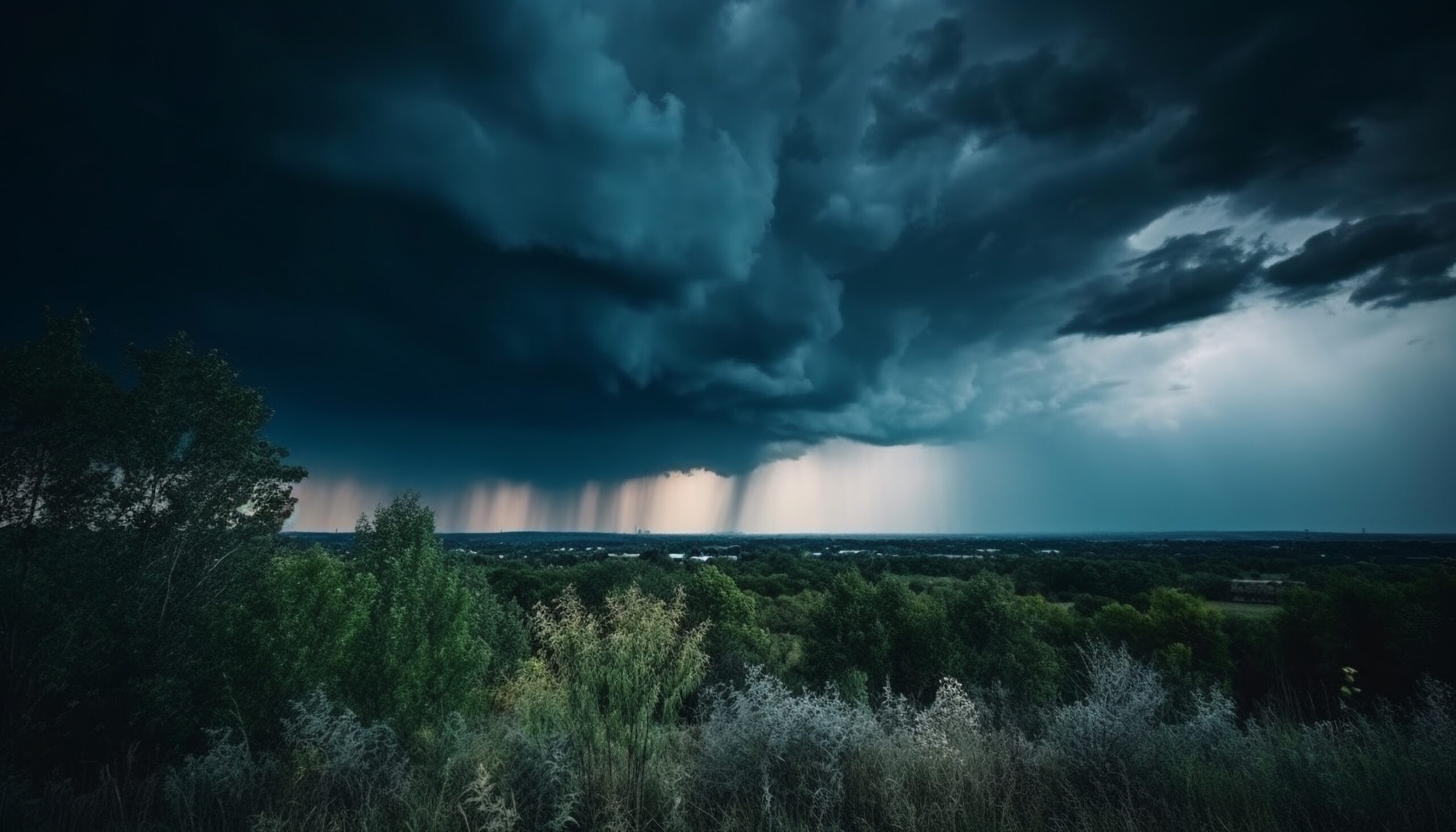It's Time to Go Outside But Remember These Outdoor Safety Tips!

Exploring the great outdoors is a fantastic way to boost your mood and well-being. There are various benefits that you can experience, whether you’re hiking through forests, cycling along trails, or simply enjoying a picnic in the park.
But if you want your outdoor activities to remain enjoyable, it’s important to take care of your health and safety.
Taking precautions and preparing for emergencies can help you prevent common injuries and illnesses that you can encounter.
But if a medical emergency should occur, CityDoc is your trusted local urgent care center, providing expert care to help you quickly get back to your favorite outdoor adventure.
Weather Watch: Understanding the ForecastWeather Watch: Understanding the Forecast
For outdoor enthusiasts, checking the weather forecast is critical before heading out for any activity. Knowing the weather patterns for the next days or hours will help gauge the risk factors and ensure you’re safe during your trip.
Extreme weather conditions, like severe heat, cold, or storms, can pose significant health risks.
For instance, high temperatures or too much sun exposure can lead to heat exhaustion or heatstroke. while heavy rainstorms might result in dangerous flash floods or landslides.
Tips for Interpreting Weather Predictions
- Temperature and Humidity: Look for where or when high and low temperatures are predicted. High humidity can make it feel hotter than the real temperature and can dehydrate you.
- Rain and Thunderstorm Alerts: These can be serious warnings to which you should pay attention. Knowing the intensity and duration of predicted rain can help avoid getting caught in a storm.
- Air Quality Index (AQI): Check the AQI, especially if you have respiratory issues. Poor air quality can trigger asthma and other respiratory problems.
- Pollen Count: This is important if you’re prone to allergies. High pollen counts can cause allergic reactions, making your outdoor experience uncomfortable.
- Wind Speed: High winds can make navigation or travel difficult and dangerous, especially for activities like cycling or sailing.
Potential Health Risks
Extreme weather conditions can lead to a variety of health issues. Extremely hot weather and prolonged exposure to high heat can cause dehydration, heat cramps, heat exhaustion, or even heat stroke, which can be life-threatening.
Conversely, extremely cold weather can lead to hypothermia or frostbite. Poor air quality, often made worse by heat and lack of wind, can aggravate respiratory conditions such as asthma or COPD.
High pollen counts during spring and summer can also trigger severe allergic reactions.
Safety First: Preparing for Outdoor Adventures
For any outdoor activity, you need the right equipment and proper safety gear. This can prevent injuries and even save lives.
Below are some essential gear and equipment for various outdoor activities.
Hiking:
- Sturdy Footwear: Invest in quality hiking boots or trail shoes that provide ankle support and excellent grip.
- First Aid Kits: Include bandages, antiseptic wipes, adhesive tape, and pain relievers.
- Navigation Tools: A map, compass, or GPS device can help avoid getting lost.
- Hydration Supply: Bring enough water or a portable water filter to use natural sources.
- Appropriate Clothing: Layer your clothing to suit the weather and environment.
- Sun Protection: Use sunscreen, sunglasses, and a hat to protect against harmful UV rays.
Cycling:
- Helmet: To protect your head in case of falls or collisions.
- Reflective Gear: Bright or reflective clothing will enhance visibility, especially in low-light conditions.
- Repair Kit: Carry a basic bike repair kit with a tire pump, spare tube, patch kit, and multi-tool.
- Water Bottle: So you can stay hydrated during your ride.
- Gloves and Protective Pads: Use gloves to protect hands and knee/elbow pads for additional safety.
Water Activities:
- Life Jacket: This is essential for swimming, boating, or water sports to prevent drowning, especially if you can’t swim.
- Swimwear: Wearing the appropriate swimwear allows freedom of movement.
- Sun Protection: Wear sunscreen, sunglasses, and a wide-brimmed hat to protect against UV rays which can cause skin cancer.
- Footwear: Certain activities or environments require water shoes to protect feet from sharp objects or hot sand.

Common Injuries and Prevention
Sometimes, despite your best efforts to be careful, accidents and injuries can still happen. Awareness of the common injuries associated with outdoor activities can help you prepare for and prevent them.
Hiking Injuries: The most common are sprained ankles, cuts, scrapes, and dehydration. Prevent them by wearing the right footwear, carrying a first aid kit, and staying hydrated.
Wild animals and other wildlife can also pose a risk. Know what areas to avoid to prevent any confrontation.
Cycling Injuries: Falls and collisions can result in head injuries, broken bones, and abrasions. Always wear a well-fitting helmet, use reflective gear when riding at night, and be extra cautious on unfamiliar paths.
You also need to perform regular bike maintenance to avoid mechanical failures.
Water-related Injuries: Drowning, jellyfish stings, and sunburn are the most common. Always wear a life jacket when at sea, follow safety guidelines, and apply adequate sun protection.

Beat the Heat: Staying Cool and Hydrated
These conditions can escalate quickly and become life-threatening without proper precautions.
Risks of Heat-Related Illnesses
Below are some of the risks and symptoms of illnesses due to extreme heat:
Dehydration
This occurs when your body loses too much fluid, impairing bodily functions. Symptoms include dry mouth, excessive thirst, dark urine, and dizziness.
Heat Exhaustion
This is caused by excessive water and salt loss due to excessive sweating. Signs include heavy sweating, weakness, cold, pale and clammy skin, nausea, and fainting.
Heatstroke
A heatstroke happens when the body can no longer regulate its temperature, leading to a rapid rise in internal temperature.
It’s the most severe of heat illness, symptoms include a high body temperature hot, red, dry, or damp skin, confusion, unconsciousness, and potential organ failure.
It’s important to seek medical help when you or someone you’re with are experiencing any of the symptoms above, especially for heatstroke.
Tips To Stay Cool and Hydrated
- Hydrate and Hydrate: Carry enough water at all times to drink throughout the day. Avoid caffeinated or alcoholic beverages, as they can be dehydrating.
- Wear Appropriate Clothing: Wear lightweight, light-colored, and loose-fitting clothes. This allows your body to cool down naturally.
- Take Frequent Breaks: Taking a break in shaded or air-conditioned areas allows your body to cool down.
- Use Cooling Accessories: Items such as cooling towels, hats, and handheld fans can give additional relief from the heat.
- Plan Activities Wisely: Engage in outdoor activities during the cooler parts of the day, like early morning or late afternoon.
- Check Yourself: Be aware of how you feel. If you start experiencing symptoms of heat-related illnesses or don’t feel well, stop your activity, hydrate, and cool down immediately.

Avoiding Outdoor Hazards: From Bugs to Plants
Outdoor adventures inevitably come with potential hazards such as insect bites, poisonous plants, and wildlife encounters.
You must know and prevent these additional risks for a safer and more enjoyable outdoor adventure.
- Insects like mosquitoes, ticks, and bees can cause discomfort and pose serious health risks.
- Plants like poison ivy, oak, and sumac can cause severe skin reactions.
- Wildlife like snakes, bears, and other animals can present significant threats.
How To Prevent Outdoor Hazards
You can do simple things to prevent and avoid these outdoor hazards. Some of these include:
- Using insect repellent.
- Wearing long-sleeved tops and pants.
- Learning to identify what poisonous plants look like.
- Staying on marked trails and making noise to avoid surprising animals.
What To Do When Bitten or During An Encounter
- Clean the area with soap and water for insect bites or when exposed to poisonous plants.
- Apply a cold pack if the bite swells.
- When encountering a snake, the best strategy is to move away slowly and give the snake space to escape.
- For larger animals like bears, do not run because this can startle the animal and cause it to chase you. Back away slowly and make yourself look larger.
Call for help or seek immediate medical attention when rashes spread after being bitten by a snake or attacked by larger wildlife.
Health clinics like CityDoc are well-equipped to handle a variety of outdoor-related health concerns. Our team of experienced medical professionals provides prompt and effective care.
We can treat insect bites, manage allergic reactions, and poison plant rashes. We can also provide the needed medical intervention for wildlife encounters.
With CityDoc, you can expect expert attention and a quick path to recovery so you can enjoy your outdoor activities again.
Injury Response: Knowing When to Seek Urgent Care
In serious accidents or encounters, recognizing the signs and symptoms of injuries that require urgent medical attention is crucial to preventing complications and ensuring a healthy recovery.
Treatment delays can worsen the condition and lead to more serious health issues. With numerous locations, CityDoc can provide urgent and emergency treatment for serious injuries.
Here are some signs and symptoms of injuries that need urgent medical care to watch out for:
- Severe Bleeding: Bleeding that can’t be controlled with direct pressure. Symptoms include continuous bleeding, blood spurting from the wound, and signs of shock such as rapid breathing or fainting.
- Fractures and Broken Bones: Signs of a fracture include severe pain, inability to move the injured part, swelling, and visible deformities.
- Head Injuries: Symptoms to watch out for are loss of consciousness, persistent headaches, dizziness, confusion, vomiting, and difficulty speaking or walking.
- Chest Pain: Severe pain accompanied by shortness of breath, dizziness, or pain radiating to the arm or jaw may indicate a heart attack and require prompt medical intervention.
Enjoy the Great Outdoors Responsibly with CityDoc’s Expert Care
Enjoying the outdoors has an array of physical and mental health benefits. Understanding the potential risks and how to prevent them will help you maximize every outdoor adventure.
Prioritize your well-being by staying informed and prepared for any outdoor risks. Staying hydrated, wearing appropriate clothing, and protecting against outdoor hazards are just a few of the important things to ensure a safe experience.
CityDoc is your partner in health, treatment, and recovery from serious injury or health issues.
For comprehensive care and further information, visit our website or any clinics nearest you.